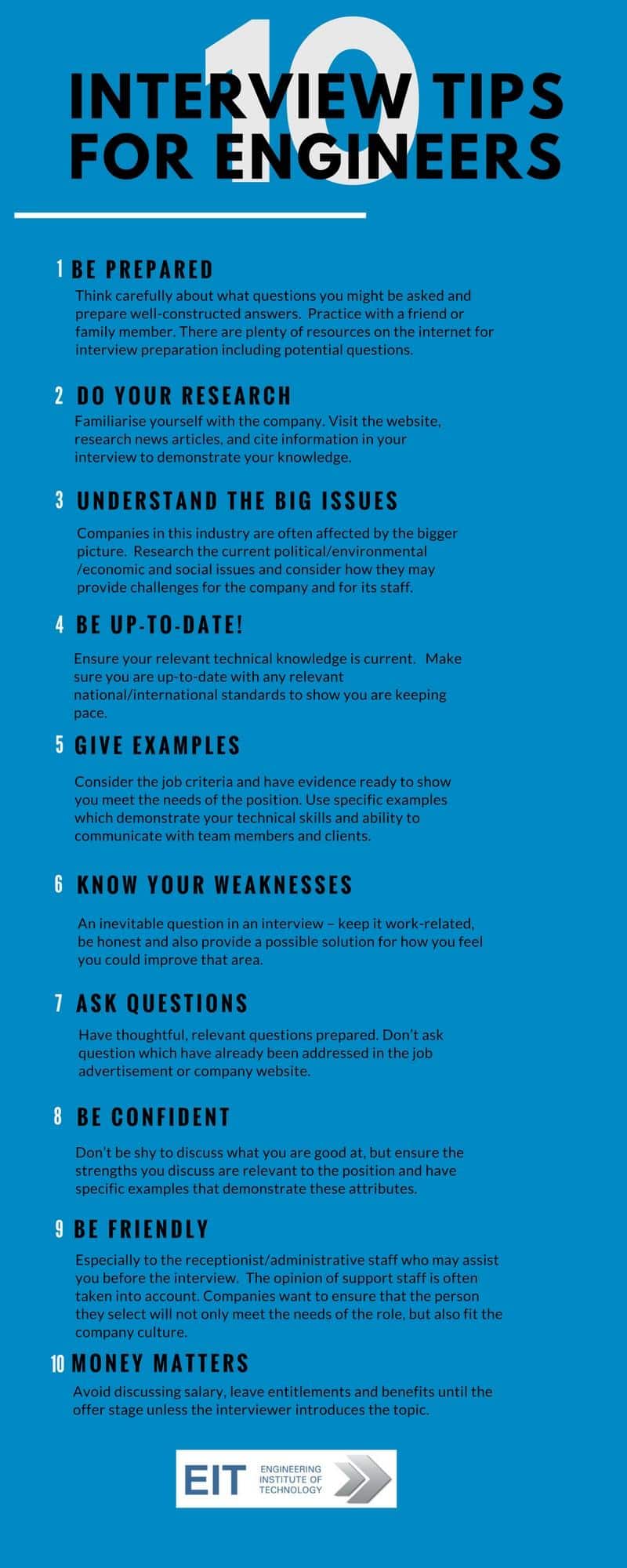
Be prepared. Think carefully about what questions you might be asked and prepare well-constructed answers. Practice with a friend or family member. There are plenty of resources on the internet for interview preparation including potential questions.
Do your research. Familiarise yourself with the company. Visit the website, research news articles, and cite information in your interview to demonstrate your knowledge.
Understand the big issues. Companies in this industry are often affected by the bigger picture. Research the current political/environmental /economic and social issues and consider how they may provide challenges for the company and for its staff.
Be up-to-date! Ensure your relevant technical knowledge is current. Make sure you are up-to-date with any relevant national/international standards to show you are keeping pace.
Give Examples. Consider the job criteria and have evidence ready to show you meet the needs of the position. Use specific examples which demonstrate your technical skills and ability to communicate with team members and clients.
Know your weaknesses. An inevitable question in an interview – keep it work-related, be honest and also provide a possible solution for how you feel you could improve that area.
Ask Questions. Have thoughtful, relevant questions prepared. Don’t ask question which have already been addressed in the job advertisement or company website.
Be confident. Don’t be shy to discuss what you are good at, but ensure the strengths you discuss are relevant to the position and have specific examples that demonstrate these attributes.
Be friendly. Especially to the receptionist/administrative staff who may assist you before the interview. The opinion of support staff is often taken into account. Companies want to ensure that the person they select will not only meet the needs of the role, but also fit the company culture.
Money matters. Avoid discussing salary, leave entitlements and benefits until the offer stage unless the interviewer introduces the topic.
